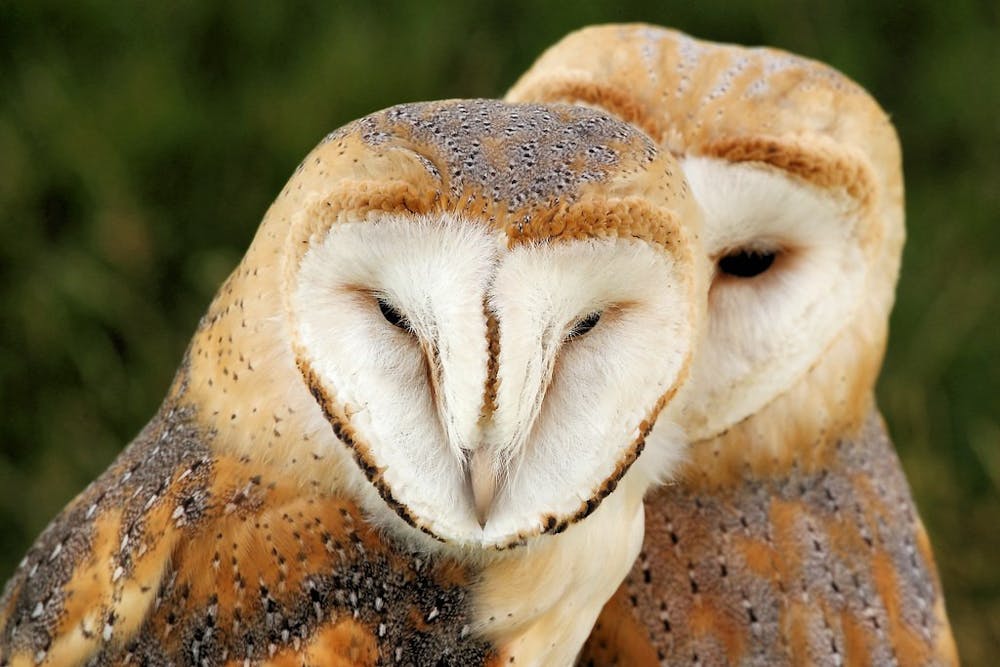People for the Ethical Treatment of Animals (PETA) filed a lawsuit against the U.S. Department of Agriculture (USDA) on April 8, deeming the barn owl experiments conducted by Shreesh Mysore unconstitutional. Mysore is an assistant professor affiliated with the Department of Neuroscience and the Department of Psychological & Brain Sciences.
PETA has been critical of the University’s owl lab in the past, organizing protests on campus and at Mysore’s home.
In the lawsuit PETA argues that the lab cannot kill these owls after experimentation due to the Bills of Attainder Clause, which prohibits capital punishments without a trial.
In an interview with The News-Letter, Asher Smith, a litigation manager for PETA working on the case, argued that these owls should receive more protection than currently granted by the Animal Welfare Act (AWA).
"By the plain text of the Constitution, these owls have the same protection against these laws as you or me, as any other groups of people, or even as inanimate corporations who currently enjoy the protections of the Bills of Attainder Clause," he said.
PETA takes issue with the Helms Amendment, which excludes bird, rats and mice from protections under the AWA.
"It's because of the Helms Amendment that laboratories across the country can routinely torture and painfully kill birds, rats and mice," Smith said. "If the AWA applied, for example, these laboratories could not allow repeated surgeries by inexperienced students, which happen to these owls."
In 2019, PETA released a podcast episode titled "PETA's Vivisector of the Month Award? The Owl Man of Baltimore" in response to Mysore's experiments.
One of the hosts, Kathy Guillermo, a senior vice president at PETA who leads the laboratory investigations division, remarked on the funding Mysore’s projects have received.
“He’s getting hundreds of thousands of dollars, if not a million or just over a million, I believe, in federal grants to do these experiments on owls. And he’s highly touted by Johns Hopkins, which makes you wonder what they’re thinking — that they think he's somehow a good PR move for the University," she said.
In a press release about the lawsuit, PETA stated that the barn owls used in Mysore's lab are stored and experimented on in unsuitable conditions.
"The experimenters will insert electrodes into the birds’ heads and restrain them so that they can’t move. The owls will then be bombarded with jarring sounds and images,“ PETA said. “When their brains have been damaged beyond use or when the experiments are over, they’ll be killed."
In an interview with The News-Letter, Vice President of International Laboratory Methods at PETA Shalin Gala clarified that they learned of the procedures through Mysore's publications, where the authors specifically describe what they do to the owls.
Gala also questioned the validity of the experiments.
"We feel that not only are these experiments misguided, but the scientific footing for them is also very, very poorly designed,“ Gala said. “The application to humans is irrelevant.”
When The News-Letter emailed Mysore for his thoughts on PETA's "torment and kill" verbalism, a response was provided from Karen Lancaster, the assistant vice president of external relations for the University. She explained that all animal studies at Hopkins are reviewed to ensure adherence to federal and AWA regulations.
"Our program also is accredited by AAALAC [Association for Assessment and Accreditation of Laboratory Animal Care] International — an independent, nonprofit organization that promotes the humane treatment of animals in science,“ she wrote. “Our accreditation is based on our adherence to AAALAC’s requirements, and those accreditation standards go beyond the federal regulatory requirements.”
Lancaster also rejected PETA's claim that the owl experiments have scant scientific footing, referencing a study on parallels between the neuroscience of birds and mammals.
"The study of owls has produced several mechanistic insights not previously reported from studies in other animals, opening up new lines of scientific research," Lancaster wrote. "Experiments designed in birds to take advantage of the similarities can give us important insights into the functioning of mammalian as well as human brains."
One "next friend,” or legal representative, of the PETA lawsuit against the USDA is Lana Weidgenant, a senior studying Public Health at Hopkins.
In an interview with The News-Letter, Weidgenant explained that she joined the lawsuit not to go against Hopkins in particular, but rather to advocate for greater protections for birds and other animals used in lab experiments.
"I'm not taking a stance against animal experimentation right now or through this lawsuit,“ she said. “I do take a stance against the kind of practices that have been done in Mysore's lab against the barn owls. I'm not trying to put that blame specifically on Hopkins or on Mysore, but rather on the lack of protection that exists.”
At Hopkins, the Center for Alternatives to Animal Testing (CAAT) housed at the School of Public Health has been working to identify alternatives to animal testing for over 40 years.
CAAT works with scientists and organizations to reduce animal testing using the Three Rs — replace animals with alternatives, reduce the number of animals and refine existing methods to alleviate the pain and stress animals experience.
Weidgenant wants to increase awareness and transparency surrounding animal experimentation performed at Hopkins.
"I think the first step is just knowing more about what's happening,“ she said. “To be better aware and have more consciousness, so that we can go from there and see if this is necessary. Is this humane? Is there a better way to do this?”
Correction: The original headline incorrectly read “PETA files lawsuit against Hopkins for barn owl lab.” The lawsuit was filed against the USDA (United States Department of Agriculture) over alleged unethical treatment in the Mysore lab.
The News-Letter regrets this error.





